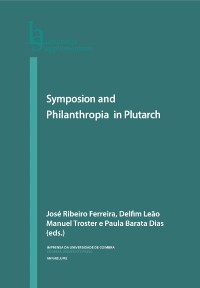Please use this identifier to cite or link to this item:
https://hdl.handle.net/10316.2/31990| Title: | Banquet and philhellenism in the Lives of Flamininus and Aemilius Paullus | Authors: | Tröster, Manuel | Issue Date: | 2009 | Publisher: | Imprensa da Universidade de Coimbra Centro de Estudos Clássicos e Humanísticos |
Journal: | http://hdl.handle.net/10316.2/2353 | Abstract: | The Lives of Flamininus and Aemilius Paullus are good examples of Plutarch’s tendency to judge his Roman heroes according to their Hellenic qualities and benefactions to Greeks. While modern scholars rightly stress that both politicians were mainly driven by Roman interests and personal ambition, the biographer chooses primarily to highlight their philanthropic nature as well as their favourable attitude to Greek liberty and culture. Conspicuously, his praise is particularly generous in two episodes related to feasts and spectacles. Following the proclamation of liberty at the Isthmian Games, Flamininus’ policies are celebrated in the course of a banquet, with his achievements being judged equal or superior to those of the most eminent Greek statesmen of the past (Flam. 11). In the Aemilius, it is the protagonist himself who organises splendid feasts in a way that inspires profound admiration on the part of the Greeks (Aem. 28). While Livy’s account suggests that the victory celebrations at Amphipolis should primarily be seen as a show of Roman power, Plutarch essentially describes the event as a pleasant entertainment with a view to revealing Aemilius’ personal qualities. Greek-style festivals and banquets thus provide a most suitable background for presenting the ‘liberators’ of Greece as exemplars of philhellenism and philanthrôpia. | URI: | https://hdl.handle.net/10316.2/31990 | ISBN: | 978-989-26-0908-9 (PDF) | DOI: | 10.14195/978-989-8281-17-3_15 | Rights: | open access |
| Appears in Collections: | Symposion and philanthropia in Plutarch |
Files in This Item:
| File | Description | Size | Format | |
|---|---|---|---|---|
| 15-_symposion_and_philanthropia.pdf | 212.99 kB | Adobe PDF |  |
Items in DSpace are protected by copyright, with all rights reserved, unless otherwise indicated.
